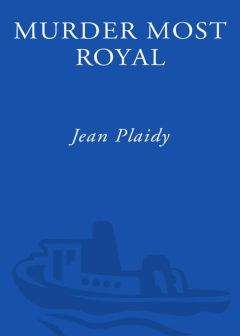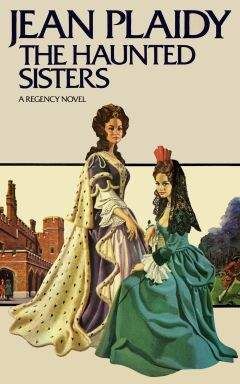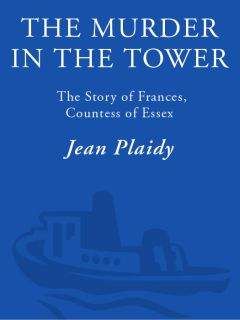Jean Plaidy - Murder Most Royal: The Story of Anne Boleyn and Catherine Howard
На сайте mybooks.club вы можете бесплатно читать книги онлайн без регистрации, включая Jean Plaidy - Murder Most Royal: The Story of Anne Boleyn and Catherine Howard. Жанр: Прочее издательство неизвестно,. Доступна полная версия книги с кратким содержанием для предварительного ознакомления, аннотацией (предисловием), рецензиями от других читателей и их экспертным мнением.
Кроме того, на сайте mybooks.club вы найдете множество новинок, которые стоит прочитать.

Jean Plaidy - Murder Most Royal: The Story of Anne Boleyn and Catherine Howard краткое содержание
Murder Most Royal: The Story of Anne Boleyn and Catherine Howard читать онлайн бесплатно
Preparing herself for the banquet which was to be given at the palace of Greenwich in honor of the departing French ambassadors, Anne thought of Wyatt. This banquet was to be the most gorgeous of its kind as a gesture of friendship towards the new allies. At Hampton these gentlemen had been entertained most lavishly by my lord Cardinal, who had recently returned from France, and so magnificent a feast had the Cardinal prepared for them that the King, jealous that one of his subjects could provide such a feast fit only for a king’s palace, would have Wolsey’s hospitality paled to insignificance by his own.
George, Anne, Surrey, Bryan and Wyatt had organized a most lavish carnival for the entertainment of these French gentlemen. They were delighted with their work, sure of the King’s pleasure. Such events were ever a delight to Anne; she reveled in them, for she knew that, with her own special gifts she excelled every other woman present, and this was intoxicating to Anne, dispersing that melancholy which she had experienced periodically since she had lost Percy and which was returning more frequently, perhaps on account of Wyatt.
Anne’s dress was of scarlet and cloth of gold; there were diamonds at her throat and on her vest. She discarded her head-dress, deciding it made her look too much like the others; she would wear her beautiful hair flowing and informal.
She was, as she had grown accustomed to be, the shining light of the court. Men’s eyes turned to watch her; there was Henry Norris, the groom of the stole, Thomas Wyatt, smouldering and passionate, the King, his eyes glittering. To Norris she was indifferent; of Thomas Wyatt she was deeply aware; the King she feared a little; but admiration, no matter whence it came, was sweet. George smiled at her with approval; Jane watched her with envy, but there was little to disturb in that, as all the women were envious; though perhaps with Jane the envy was tinged with hatred. But what did Anne care for her brother’s foolish wife! Poor George! she thought. Better to be alone than linked with such a one. It could be good to be alone, to feel so many eyes upon her, watching, admiring, desiring; to feel that power over these watching men which their need of her must give her.
About her, at the banquet, the laughter was louder, the fun more riotous. The King would join the group which surrounded her, because he liked to be with gay young people; and all the time his eyes burned to contemplate her who was the center of this laughing group.
The Queen sat, pale and almost ugly. She was a sad and frightened woman who could not help thinking continually of the suggested divorce; and this feast in itself was a humiliation to her, since she, a Spaniard, could find little joy in friendship with the French!
The King’s distaste for his Queen was apparent; and those courtiers who were young and loved gaiety, scarcely paid her the homage due to her; they preferred to gather round Anne Boleyn, because to be there was to be near the King, joining in his fun and laughter.
Now, from his place at the head of the table, the King was watching Wyatt. Wine had made the poet over-bold and he would not move from Anne’s side though he was fully aware of Henry’s watching eyes. There was hardly anyone at the table who was ignorant of the King’s passion, and there was an atmosphere of tension in the hall, while everyone waited for the King to act.
Then the King spoke. There was a song he wished the company to hear. It was of his own composing. All assumed great eagerness to hear the song.
The musicians were called. With them came one of the finest singers in the court. There was a moment’s complete silence, for no one dared move while the King’s song was about to be sung. The King sat forward and his eyes never left Anne’s face until the song was finished and the applause broke out.
“The eagle’s force subdues each bird that flies:
What metal can resist the flaming fire?
Doth not the sun dazzle the clearest eyes
And melt the ice, and make the frost retire?
The hardest stones are pierced through with tools,
The wisest are with princes made but fools.”
There could be no doubt of the meaning of these arrogant words; there could be no doubt for whom they were written. Anne was freshly aware of the splendor of this palace of Greenwich, of the power it represented. The words kept ringing in her ears. He was telling her that he was weary of waiting; princes, such as he was, did not wait over-long.
This evening had lost its joy for her now; she was afraid. Wyatt had heard those words and realized their implication; George had heard them, and his eyes smiled into hers reassuringly. She wanted to run to her brother, she wanted to say: “Let us go home; let us go back to being children. I am afraid of the glitter of this court. His eyes watch me now. Brother, help me! Take me home!” George knew her thoughts. She saw the reckless tilt of his head, and imitated it, feeling better, returning his smile. George was reassuring. “Never fear, Anne!” he seemed to convey. “We are the Boleyns!”
The company was applauding. Great poetry, was the verdict. Anne looked to him who, some said, was the literary genius of the court, Sir Thomas More; his Utopia she had just read with much pleasure. Sir Thomas was gazing at his large and rather ugly hands; he did not, she noticed, join in the effusive praise of the others. Was it the poetry or the sentiments, of which Sir Thomas did not approve?
The King’s song was the prelude of the evening’s entertainment, and Anne with her friends would have a big part in this. She thrust aside her fears; she played that night with a fervor she had rarely expressed before in any of these masquerades and plays which the quartet contrived. Into her fear of the King there crept an element which she could not have defined. What was it? The desire to make him admire her more? The company were over-courteous to her; even her old enemy, Wolsey, whom she had never ceased to hate, had a very friendly smile! The King’s favorites were to be favored by all, and when you had known yourself to be slighted on account of your humble birth...when such a man as Wolsey had humiliated you...yes, there was pleasure mingling with the fear of this night.
She was like a brilliant flame in her scarlet and gold. All eyes were upon her. For months to come they would talk of this night, on which Anne had been the moon to all these pale stars.
The evening was to end with a dance, and in this each gentleman would choose his partner. The King should take the Queen’s hand and lead the dance, whilst the others fell in behind them. The Queen sat heavy in her chair, brooding and disconsolate. The King did not give her a look. There was a moment of breathless silence while he strode over to Anne Boleyn, and thus, choosing her, made public his preference.
His hand held hers firmly; his was warm and strong; she felt he would crush her fingers.
They danced. His eyes burned bright as the jewels on his clothes. Different this from the passion of Wyatt; fiercer, prouder, not sad but angry passion.
He would have speech with her away from these people, he said. She replied that she feared the Queen’s disapproval should she leave the ballroom.
He said: “Do you not fear mine if you stay!”
“Sir,” she said, “the Queen is my mistress.”
“And a hard one, eh?”
“A very kind one, Sir, and one whose displeasure I should not care to incur.”
He said angrily: “Mistress, you try our patience sorely. Did you like our song?”
“It rhymed well,” she said, for now she sat with him she could see that his anger was not to be feared; he would not hurt her, since mingling with his passion there was a tenderness, and this tenderness, which she observed, while it subdued her fear, filled her with a strange and exalted feeling.
“What mean you?” he cried, and he leaned closer, and though he would know himself to be observed he could not keep away.
“Your Majesty’s rhyme I liked well; the sentiments expressed, not so well.”
“Enough of this folly!” he said. “You know I love you well.”
“I beg your Majesty...”
“You may beg anything you wish an you say you love me.”
She repeated the old argument. “Your Majesty, there can be no question of love between us...I would never be your mistress.”
“Anne,” he said earnestly, pleadingly, “should you but give yourself to me body and soul there should be no other in my heart I swear. I would cast off all others that are in competition with you, for there is none that ever have delighted me as you do.”
She stood up, trembling; she could see he would refuse to go on taking no for an answer, and she was afraid.
She said: “The Queen watches us, Your Majesty. I fear her anger.”
He arose, and they joined the dancers.
“Think not,” he said, “that this matter can rest here.”
“I crave Your Majesty’s indulgences. I see no way that it can end that will satisfy us both.”
“Tell me,” he said, “do you like me?”
“I hope I am a loving subject to Your Majesty...”
“I doubt not that you could be a very loving one, Anne, if you gave your mind to it; and I pray you will give your mind to it. For long have I loved you, and for long have I had little satisfaction in others for my thoughts of you.”
“I am unworthy of Your Majesty’s regard.”
She thought: Words! These tiresome words! I am frightened. Oh, Percy, why did you leave me! Thomas, if you loved me when you were a child, why did you let them marry you to a wife!
The King towered over her, massive and glittering in his power. He breathed heavily; his face was scarlet; desire in his eyes, desire in his mouth.
She thought: Tomorrow I shall return secretly to Hever.
The Queen was sulky. She dismissed her maids and went into that chamber wherein was the huge royal bed which she still shared with Henry, but the sharing of which was a mere formality. She lay at one extreme edge; he at the other.
She said: “It is useless to pretend you sleep.”
He said: “I had no intention of pretending, Madam.”
“It would seem to be your greatest pleasure to humiliate me.”
“How so?” he said.
“It is invariably someone; tonight it was the girl Boleyn. It was your kingly duty to have chosen me.”
“Chosen you, Madam!” he snorted. “That would I never have done; not now, nor years ago, an the choice were mine!”
She began to weep and to murmur prayers; she prayed for self-control for herself and for him. She prayed that he might soften towards her, and that she might defy the doctors who had prophesied that he would never get a male heir from her.
He lay listening to her but paying little attention, being much accustomed to her prayers, thinking of a girl’s slender body in scarlet and gold, a girl with flowing hair and a clever, pointed face, and the loveliest dark eyes in the court. Anne, he thought, you witch! I vow you hold off to provoke me....Pleasant thoughts. She was holding off to plague him. But enough, girl. How many years since I saw you in your father’s garden, and wanted you then! What do you want, girl? Ask for it; you shall have it, but love me, love me, for indeed I love you truly.
The Queen had stopped praying.
“They give themselves such airs, these women you elevate with your desires.”
“Come,” he said, gratified, for did not she give herself airs, and was it then because of his preference for her? “It is natural, is it not, that those noticed by the King should give themselves airs?”
“There are so many,” she said faintly.
Ah! he thought, there would be but one, Anne, and you that one!
The Queen repeated: “I would fain Your Majesty controlled himself.”
Oh, her incessant chatter wearied him. He wished to be left alone with his dream of her whose presence enchanted him.
He said cruelly: “Madam, you yourself are little inducement to a man to forsake his mistresses.”
She quivered; he felt that, though the width of the vast bed separated them.
“I am no longer young,” she said. “Am I to blame because our children died?” He was silent; she was trembling violently now. “I have heard the whispering that goes on in the court. I have heard of this they call The King’s Secret Matter.”
Now she had dragged his mind from the sensuous dream which soothed his body. So the whispering had reached her ears, had it! Well, assuredly it must reach them some time; but he would rather the matter had been put before her in a more dignified manner.
She said appealingly: “Henry, you do not deny it?”
He heaved his great body up in the bed. “Katharine,” he said, “you know well that for myself I would not replace you; but a king’s life does not belong to him but to his kingdom. And Katharine, serious doubts have arisen in my mind, not lately but for some time past; and well would I have suppressed them had my conscience let me. I would have you know, Katharine, that when our daughter’s marriage with the Duke of Orleans was proposed, the French ambassador raised the question of her legitimacy.”
“Legitimacy!” cried Katharine, raising herself. “What meant he? My lord, I hope you reproved him most sternly!”
“Ah! That I did! And sorely grieved was I.” The King felt happier now; he was no longer the erring husband being reproved by his too faithful wife; he was the King, who put his country first, before all personal claims; and in this matter, he could tell himself, the man must take second place to the King. He could, lying in this bed with a woman whose pious ways, whose shapeless body had long since ceased to move him except with repugnance, assure himself that the need to remain married to her was removed.
He had married Katharine because there had been England’s need to form a deep friendship with Spain, because England had then been weak, and across a narrow strip of channel lay mighty France, a perennial enemy. In those days of early marriage it had been a hope of Henry’s to conquer France once more; with Calais still in English hands, this had not seemed an impossibility; he had hoped that with the Emperor’s help this might be effected, but since the undignified affair at Pavia, Charles was hardly likely to link himself with English allies; thus was the need for friendship with Spain removed; Wolsey’s schemes had been called to a halt; the new allies were the French. Therefore, what could be better for England than to dissolve the Spanish marriage! And in its place...But no matter, dissolve the Spanish marriage since it could no longer help England.
These were minor matters compared with the great issue which disturbed his conscience. God bless the Bishop of Tarbes, that ambassador who had the tact at this moment to question the legitimacy of the Princess Mary.
“’Twere a matter to make a war with France,” said Katharine hotly. “My daughter a bastard! Your daughter...”
“These matters are not for women’s wits,” said the King. “Wars are not made on such flimsy pretexts.”
“Flimsy!” she cried, her voice sharp with fear. Katharine was no fool; to the suppers given in her apartments there came the most learned of men, the more serious courtiers, men such as Sir Thomas More; she was more fastidious than the English ladies, and she had never tried to learn the English ways. She did not enjoy the blood sports so beloved by her husband. At first he had protested when she had told him that Spanish ladies did not follow the hawk and hound. But that was years ago; he thought it well now that she did not attend sporting displays, since he had no wish for her company. But there was that in her which must make him respect her, her calm dignity, her religious faith; and even now, when this great catastrophe threatened her, she had not shown publicly—apart from her melancholy, which was natural to her—that she knew what was afoot. But she was tenacious; she would fight, he knew, if not for herself for her daughter. Her piety would tell her that she fought for Henry as well as for herself, that divorce was wrong in the eyes of the Church, and she would fight with all her quiet persistence against it.
Похожие книги на "Murder Most Royal: The Story of Anne Boleyn and Catherine Howard", Jean Plaidy
Jean Plaidy читать все книги автора по порядку
Jean Plaidy - все книги автора в одном месте читать по порядку полные версии на сайте онлайн библиотеки mybooks.club.




